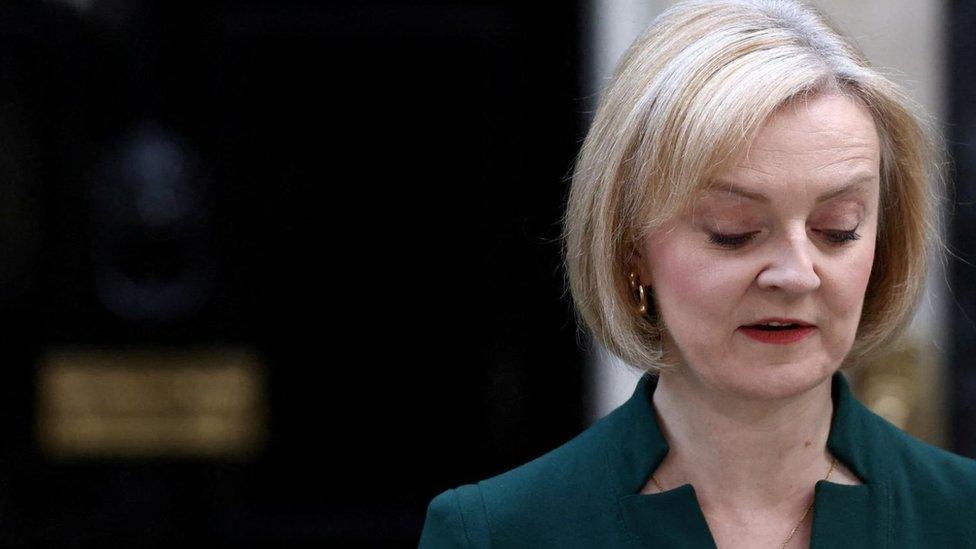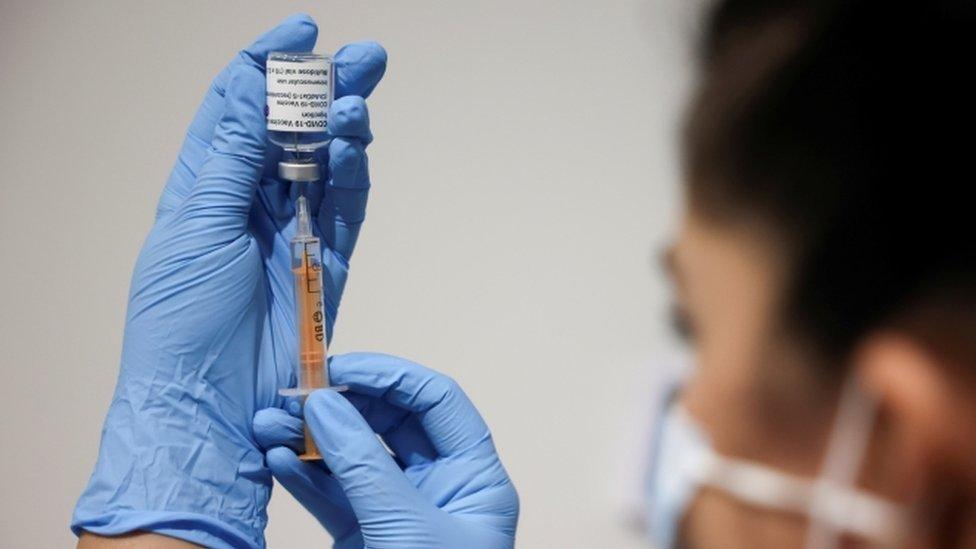Permacrisis declared Collins Dictionary word of the year
- Published

Former prime minister Liz Truss became the shortest-serving UK leader after resigning last month
Permacrisis - a word describing the feeling of living through a period of war, inflation, and political instability - has been chosen as Collins Dictionary's word of the year.
It "sums up just how truly awful 2022 has been for so many people", said Alex Beecroft, head of Collins Learning.
It led Collins's annual compilation of 10 words or phrases which "reflect our ever-evolving language and the preoccupations of those who use it".
Quiet quitting also made the list.
This phrase is "the act of doing one's basic duties at work and no more, either by way of protest or to improve work/life balance".
Mr Beecroft added: "Language can be a mirror to what is going on in society and the wider world, and this year has thrown up challenge after challenge."
He said it was understandable that people may feel "we are in an ongoing state of uncertainty and worry", after "living through upheaval caused by Brexit, the pandemic, severe weather, the war in Ukraine, political instability, the energy squeeze and the cost-of-living crisis".
Collins's lexicographers said several words on the list relate to these crises.
The list was compiled by monitoring the eight billion-word Collins Corpus database of words,, external plus a range of media sources, including social media.
Permacrisis is one of six words on the list that are new to CollinsDictionary.com, and was first noted as a word in academic contexts in the 1970s.
Mr Beecroft added: "Our list this year reflects the state of the world right now - not much good news, although, with the determination of the Ukrainian people reflected by the inclusion of Kyiv, and the dawn of the new Carolean age in the UK, there are rays of hope."
Here is the list of the top 10 words and phrases in alphabetical order, plus their definitions in full:
Carolean: Of or relating to Charles III of Great Britain and Northern Ireland or his reign.
Kyiv: The capital of Ukraine, on the Dnipro River.
Lawfare: The strategic use of legal proceedings to intimidate or hinder an opponent.
Partygate: A political scandal over social gatherings held in British government offices during 2020 and 2021 in defiance of the public health restrictions that prevailed at the time.
Permacrisis: An extended period of instability and insecurity, especially one resulting from a series of catastrophic events.
Quiet quitting: The practice of doing no more work than one is contractually obliged to do, especially in order to spend more time on personal activities; the practice of doing little or no work while being present at one's place of employment.
Splooting: The act of lying flat on the stomach with the legs stretched out.
Sportswashing: The sponsorship or promotion of sporting events in order to enhance a tarnished reputation or distract attention from a controversial activity.
Vibe shift: A significant change in a prevailing cultural atmosphere or trend.
Warm bank: A heated building where people who cannot afford to heat their own homes may go.
Last year's word of the year for the Oxford Dictionary was vax, while words related to vaccines spiked in frequency in 2021 because of Covid, with double-vaxxed, unvaxxed and anti-vaxxer all seeing a surge in use.
Previous Collins' words of the year include lockdown, climate strike, single-use, fake news, Brexit, binge-watch, photobomb and geek.
The Oxford Dictionary's previous words of the year include climate emergency, toxic, youthquake, post-truth, emoji-tears-of-joy, vape and selfie.
Related topics
- Published1 November 2021
